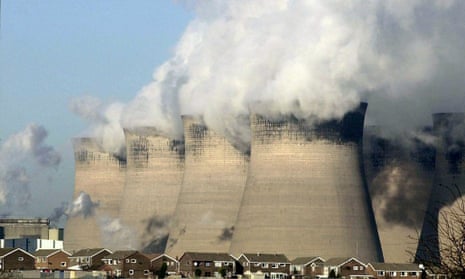Last month Dutch MP Jan Vos told Europe’s largest pension fund ABP and hundreds of its members that he was disappointed at the fund’s lack of ambition to take on climate change, complaining that “there wasn’t enough urgency.”
It’s a proclamation we can expect to be repeated in every corner of the globe over the coming months and years.
A clear trend is emerging across the world’s seven largest pension markets as governments actively look to pension funds for leadership and guidance. These owners of nearly $40 trillion in assets have been thrust into the spotlight thanks to climate change.
Partly because of the obvious failings of their advisers and fund managers over the sub-prime crisis, and the new accountability generated by the divestment movement and the Asset Owners Disclosure Project, pension funds have started to take influence back from those whom they previously outsourced their functions to.
UK secretary of state for energy and climate change Ed Davey’s understanding of their potential to address climate change is now being revealed as regular commentary, although picking carbon losers such as coal could quickly backfire if he doesn’t broaden the message into a risk-based one.
For pension funds not used to the sophisticated public relations strategies of politicians there is only one choice and that is to respond positively. The lines meted out for more than a decade have not worked, and investors, politicians and increasingly the media are demanding accountability. Indeed a major part of portfolio risk is the slow pace of government response and there is nothing in the fiduciary duty that removes the obligation to hedge a portfolio against political intransigence.
The prize now is to see which type of democracy will come out on top. At the ABP meeting last month, vice chair Jose Meijer was confronted by hundreds of investors and questioned for more than an hour and a half over divestment, carbon risk and its engagement with Royal Dutch Shell.
The new financial democracy is now in play and while Meijer pointed out that the audience may not have been completely representative, the onus on pension funds will be to disclose and defend their risk strategies to members on a vast scale.
Maybe we can hire Wembley stadium and invite members from one of the UK’s largest pension funds, the Universities Superannuation Scheme, for a new carbon-risk vote? I suspect technology will have an important role to play, as accommodating its 2.8 million members would require a Wembley sellout for a month.
Whatever the accountability process, the problem for the funds is that the real underlying risk analysis hasn’t been done properly. While ABP is indeed a leader in the climate risk area and Meijer defended ABP’s advisers and analysts, the judgement and homework required to look forward on risk rather than backwards has still not yet been completed.
The rear-facing allocation models of their advisers and the short-term trading orientation of their fund managers is simply not fit for purpose. Politicians are starting to realise this weakness too and are going in for the kill. We could yet see the solution to climate change without a single carbon price shot being fired.
This article was amended on 7 April 2015, an earlier version incorrectly named Dutch MP Jan Vos as Jan Bos.
The finance hub is funded by EY. All content is editorially independent except for pieces labelled “brought to you by”. Find out more here.
Join the community of sustainability professionals and experts. Become a GSB member to get more stories like this direct to your inbox.

Comments (…)
Sign in or create your Guardian account to join the discussion